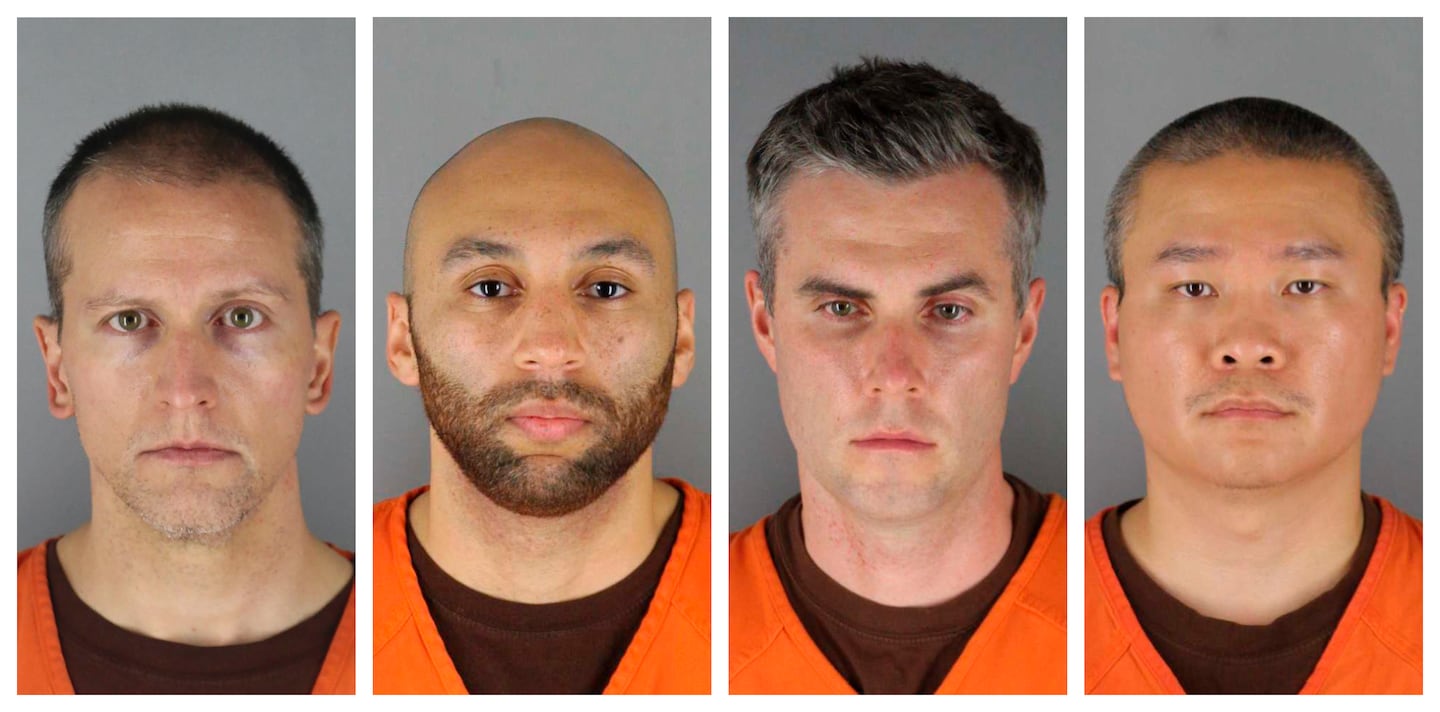The trial of George Floyd’s alleged killers must stay in Minneapolis

Assuring criminal defendants a trial by an impartial jury is imperative; indeed, it is guaranteed by the U.S. Constitution and its Minnesota counterpart. Pretrial publicity may be so pervasive and negative that a change of venue is in order. But granting that request in the Floyd case would be wrong — and would set a dangerous precedent.
Trial venue is not a minor procedural issue. It matters because the people’s voice matters. The arguments by those charged in Floyd’s death could be raised by any high-profile defendant seeking to evade local oversight in any trial court in the United States. If venue is changed routinely in police brutality cases, there is a grave danger that citizens will lack the power to hold police forces accountable when a rogue officer fails to behave lawfully.
Why are the defendants so desperate to run away from the Twin Cities? The defendants claim “an impartial jury cannot be seated for the trial” in Minneapolis because of the saturated media coverage and ensuing protests. This claim is misguided for at least three reasons.
First, bystanders filmed Floyd’s death in a video that went viral on a global scale. No city in Minnesota, the United States and perhaps the entire Internet-connected world would be immune from the Floyd defendants’ concerns of a jury pool irretrievably biased by excessive media coverage.
Interestingly, defense counsel concedes the Minnesota Supreme Court has held that a change of venue is not warranted in a case where “no evidence had been provided to indicate that any part of Minnesota had been shielded from publicity.” Faced with case law that requires the opposite of what they seek, the Floyd defendants are left to argue the rules must be bent for them: “The legal standard needs to be altered.”
Second, while protesting the nonstop media coverage, the attorney for Derek Chauvin, the officer who pressed his knee into Floyd’s neck, objects to the gag order in this case, asserting it “prevents any mitigating or exculpatory information from entering the public conversation.” What is that mitigating information? Apparently, based on further filings, Chauvin and a co-defendant want to raise claims of Floyd’s purported drug use, violence and criminal record. It cannot be that the defendants may have it both ways, arguing that they have suffered from too much (adverse) publicity and inadequate (positive) publicity.
Third, and perhaps most significant, the jury demographic pool changes dramatically outside the Twin Cities metro area, in a way that is likely helpful to the defendants and harmful to Floyd. The Census Bureau estimates that Hennepin County, where Floyd died, is 14 percent Black and 74 percent White. Hennepin County is the most diverse county in the state, and it would be nearly impossible to seat an all-White jury in Minneapolis. By contrast, the three rural counties where one of the defendants has suggested in his motion to change venue have Black populations of less than 1 percent to 4 percent.
Jury pools that do not share the same community dynamics of Floyd’s home deny the people of Minneapolis their interest in achieving justice in this case. Minneapolis streets burned in response to Floyd’s death. Minneapolis businesses, many minority-owned, suffered the brunt of the unrest that resulted when politicians pulled back from protecting the city. The people of Minneapolis are still dealing with the consequences for law enforcement and their own safety.
Sadly, police brutality is not unique to Minneapolis. Nor are the demographic patterns in metropolitan vs. rural areas unique to Minnesota. The risks posed by changing venues in police brutality cases are painfully evident. These cases are hard for prosecutors to win in any event, and a loss carries with it the threat of violent reaction by an angry community that believes justice has been denied. In 1992, Los Angeles exploded in anger after widespread suspicion that a venue change from Los Angeles to Simi Valley, Calif., led to the acquittal of four police officers charged with beating Rodney King. The Bill of Rights applies to “We the People of the United States” and not just to criminal defendants. The framers of the Constitution are unlikely to have foreseen the complexities of our digital age, but they trusted the American people to control every branch of their government, including the judiciary through the Sixth Amendment jury trial guarantee.
As a woman of color, I was heartbroken to see the images of Floyd’s dying moments. As a former U.S. attorney and civil servant privileged to work with many honorable law enforcement officers, I am concerned by the prospect of police facing the wrath of angry protesters because of the actions of four men in Minneapolis. It is because I support law enforcement and uphold the Constitution that I am convinced that those who abuse their authority must answer for their actions to their own constituents. The trial must remain in Minneapolis.
Read more:






